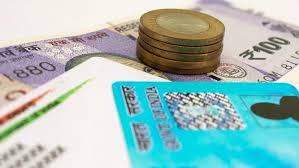PAN: PAN ( PAN) i.e. Permanent Account Number (Permanent Account Number), is a unique 10-digit alphanumeric identifier assigned to every taxpayer by the Income Tax Department. It is overseen by the Central Board of Direct Taxes. It also serves as identity verification. PAN is required for many things like earning taxable salary or professional fees, selling or buying assets above prescribed limits, buying mutual funds, etc. Let us know for what and where is PAN used.
PAN card in banking
You will have to provide your PAN card while opening a savings, current or fixed deposit account.
PAN is required for depositing more than Rs 50,000 in cash in a day and withdrawing more than this amount.
When applying for a loan or credit card, banks will ask for your PAN to assess your creditworthiness and financial history.
PAN is essential for tracking interest income on savings accounts and fixed deposits, ensuring that the correct amount of tax is deducted at source.
PAN Card in Investing
You need a PAN to open a demat account, in which your shares are held electronically. It is also required for trading in the stock market.
When investing in mutual funds, a PAN card is mandatory for transactions above Rs 50,000. It helps track your investments and capital gains.
If you invest in bonds or debentures, you will need to provide your PAN. It helps track interest income and ensures proper tax deduction.
When buying gold worth more than Rs 2 lakh, a PAN card is required. This measure helps prevent tax evasion and ensures transparency in high-value transactions.
PAN Card in Property Transactions
When buying a property worth Rs 10 lakh or more, you must provide your PAN card. This rule applies to both residential and commercial properties.
If selling a property, you must mention your PAN card in the sale deed. This helps track capital gains from the sale and ensures that appropriate taxes are paid.
When applying for a home loan, banks require your PAN card to assess your financial background and loan-worthiness.
For rental agreements where the annual rent is more than Rs 1 lakh, both the tenant and the landlord must provide their PAN cards.
 Indian Thought Latest News & Views
Indian Thought Latest News & Views


